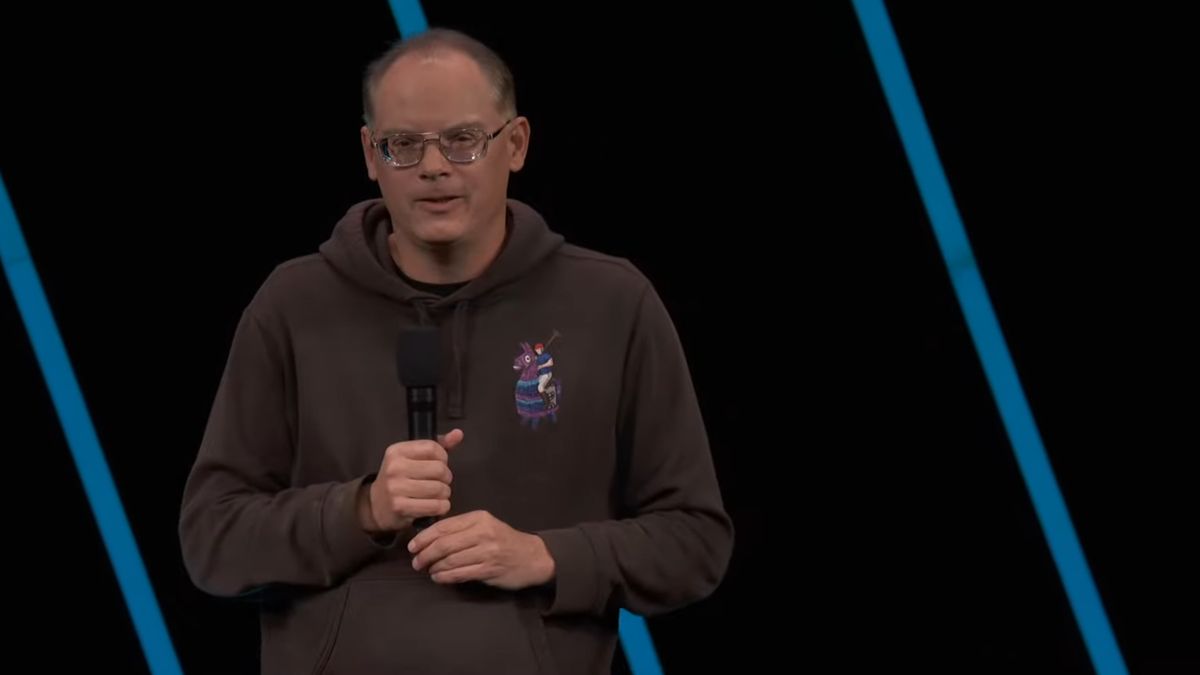To get the main strawman argument out the way - I never said all the problems today are from companies making their own mistakes. There's certainly some market changes making things harder. But it's nowhere near as bad as we're being fooled into believing because some of the bigger issues are 100% self-inflicted.
I think it's a bit grand to call all of us naive and blindly swallowing narrative, yet when I respond to your words that I'm attacking a straw man, or that I took your words out of context. You use the words nowhere near as bad, but that's nothing more than a perspective, you've not actually done any analysis into how badly the game industry is getting pummelled. We have significantly more flops than ever before, despite the fact that revenues keep growing. That's not 100% self inflicted, they are using a model of developing games that they've always used, they are just no longer getting a pay out for it anymore.
#1 - no, the 'market dynamics' did not go away from Xbox. lol This is one of the most hilarious claims I've ever seen to suggest why Xbox has declined. Xbox simply executed poorly on games. They weren't making some drastically different types of games from Playstation on the whole. Plus Call of Duty was one of the franchises that remained very popular on Xbox, so that did not hurt them. Either way, this does not go against my argument at all. Quite the opposite.
Market dynamics have _never_ been in favour of Xbox. Xbox OG did not succeed, and 360 at best managed to equal PS3 as a result of a massive fumbling by Sony. What happened with Xbox One and Series X is more in line with Xbox always being in third place, and their attempts to try to move upwards. Xbox hasn't declined, from a revenue perspective they are making more than ever today, Xbox is pivoting away from consoles.
#2 - technological advancements aren't slowing that dramatically. We can still see very healthy improvements in performance for CPU's and GPU's every generation. Maybe AMD fumbled with RDNA3 big-time, but that wasn't because the industry, that was self-inflicted. Lovelace was an immense leap forward, by contrast.
Technological advancements have slowed immensely when it comes to silicon enhancements in comparison to prior leaps that were following Moore's Law. The majority of advancement are in spaces where games do not exist! All that hardware in Lovelace is being used, barely in games but in significantly more profitable industries like AI. Outside of resolution, anti-aliasing, and frame generation, AI has done very little for the games industry. While AI has significant impacts outside of the games industry. We've not see anything special since PS3-PS4 where there were massive introductions to PBR. RT and Higher density models, are all welcome. But they haven't had the transformative change that most people are used to seeing generation to generation.
#3 - another point that's only supporting my argument. Xbox has screwed up over and over and over, which has led them to lose the XB1 generation, but it's worse in that they continue to make mistakes and have a lack of direction, hurting them ever more. The 'console model' isn't outdated, Xbox is just criminally mismanaged. Also, them losing so badly is only hurting things more cuz it lets Arrogant Sony™ return.
They were never going to win the XB1 generation, I just don't see how this was ever a reasonable perspective of the landscape. Once again, Xbox is making the most revenue it's ever made today, despite being a country mile behind the leaders. I don't see how that is criminally mismanaged. Sony doing Sony things, is entirely on Sony. It's an absolute travesty whenever I read a comment like Xbox doing poorly is hurting the industry even more. It showcases a deep rooted bias that clearly most people are unaware that they have - no matter what Sony does, poeple will give them a pass a find a way to point the blame over to Xbox.
The fact that you blame Xbox failing for arrogant Sony returning is an indication that MS was never a contender in anyones eyes, they're just there to keep Sony in check ... See point #1 again.
If players actually gave a damn, they would not reward Sony for this behaviour. Yet they continue to do so, so whatever, its the gamers fault Sony behaves this way.
#4 - costs are certainly a valid argument, but that's also not *as* bad as people are being led to believe, either. These companies are just becoming margins-obsessed and many seem to be happier selling less at a higher price. If anybody can look around honestly tell you that the all the price increases we've seen have been 100% justified and reasonable, they are a naive fool.
Once again, real numbers show the opposite. It's only your perspective that things are 'not as bad' as people make it out to be, that's an easy stance to take if you aren't diving into numbers. You see the amount of inflation there is, games need to sell nearly double to triple what they used to sell as long as this 89.99 price point holds. Is that reasonable for the entire industry to do? Or does it make more sense to increase prices because you know you're not going to get the numbers regardless?
At the end of the day, games are a business, they cost many multi-millions of dollars to make, someone is funding this, its not out of the good heart of people. It feels like your perspective is largely skewed against this idea, and that if you just build it correctly, gamers will naturally reward companies for it; That's never been a recipe to staying alive for any business.
#5 - this generation has sucked man. It's honestly a miracle the new gen consoles have sold as well as they have(a lot was in thanks to the pandemic boost). And most of the reason this generation has sucked is because of terrible trend chasing, and just outright lackluster execution. Again, things would look better if Xbox had gotten their stuff in order, and Playstation didn't go all-in on live service tat, and weren't spending incredibly irresponsible all over(including billions in paid exclusivity deals). Nintendo is looking very healthy. PC gaming is still doing really well overall. The gaming industry is largely fine(though not without issues), but the people running the industry have been screwing up non-stop and are trying to blame everybody but themselves for it. And naive gamers eat it up for some bizarre reason.
Considering how many layoffs there are at gaming companies these last few years, I would disagree with that sentiment. The generation has sucked, I agree with that. But it would be a mistake to see a growing industry and declare it 'healthy'. PC Gaming is growing because PCs are being sold all the time for a lot of reasons other than gaming! WRT Steam, it is the only platform on PC, and it doesn't have to do anything to get you to use it. If people suddenly stop buying gaming hardware that doesn't negatively affect Steam! Steam does not need to make exclusives to force you to use their store, steam does not need to release hardware for you to use their ecosystem. There is nothing to screw up here! They are the ideal platform.
The console space is where things are getting heated, and they cannot just become Steam overnight, despite their best desires to do so. Buying hardware to get access to some video games will not be the model forever, especially when concerning the new generation of gamers. There's just not a lot of value in a console other than playing games.
It's the least valuable electronic entertainment device people will own after their smart phones and laptops.


